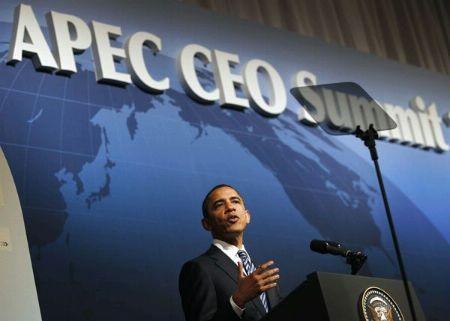Each year an increasing amount of greenhouse gases is emitted into the atmosphere, both naturally and through human activities. This increase has become a global issue. Therefore, one of the leading economic forums has decided to address the issue.
On Nov. 13, in Honolulu, Hawaii, the Asia-Pacific Economic Cooperation announced an initiative to stimulate green growth and sustainability, as reported in Reuters.
APEC is the leading economic alliance between 21 countries in the Asia-Pacific region including the U.S., Russia, Japan and China. The cooperation’s main goal is to ensure sustainable economic growth. The most measurable proposal is a plan to lower the tariffs on environmental goods to five percent by 2015.
The APEC countries comprise a majority of the fastest-growing economies in the world and also some of the biggest producers of greenhouse gases; this includes China and the U.S., who are the top two.
“APEC has traditionally been a laboratory for some of the best and newest ideas in global commerce,” said U.S. Trade Representative Ambassador Ron Kirk in a statement about the new announcement. “We believe the outcomes of this year will keep APEC’s agenda on the cutting edge for the next 20 years.”
According to an article from Reuters, the agreement is cutting-edge because APEC is a major economic alliance that accounts for “about 60 percent of current trade in environmental goods and services.”
One major obstacle for the agreement is that it hinges on voluntary compliance, which means all of the countries have to cooperate with each other to accomplish green growth.
“Generally speaking, if you only have voluntary goals with no way to back them up, very rarely are they met,” said Angie Moore, associate professor of geology.
Another major goal of the cooperation is to cut the energy intensity of all APEC countries by at least 45 percent by 2035, according to The Japan Times. Scientists defined energy intensity as “a measure of energy consumption based on gross domestic product.”
China is important in this agreement because they are the largest producer of solar panels and their technology is the most advanced in the world.
“China is probably the most influential player in this game,” Moore said. “If they decide not to go along with it, the initiative will be highly ineffective.”
Skepticism towards the plan is not limited to the fact that the plan is restricted to voluntary involvement.
“Reducing tariffs on China’s environmental products such as solar panels weakens the U.S. efforts to increase domestic production,” said H. James Morrison, a junior studying sustainability in public policy at the University of North Carolina at Chapel Hill. “The plan solidifies China as a major player in domestic economy.”
Some critics have said the APEC agreement puts the U.S. in a hypocritical position regarding environmental issues.
“We have not been able to do anything domestically, and we never signed the Kyoto Protocol,” Moore said. “We do not have national renewable energy standards or any profound investment in renewable energy.”
Despite the U.S.’s failure to address environmental issues domestically, as critics suggest, supporters of the APEC agreement see it as a major step forward in the greening of the global community.
“The fact that APEC is a primarily economic organization that is actually looking at this concept of greening and thinking about it in terms of revenue generation and trade is kind of exciting,” Moore said.

